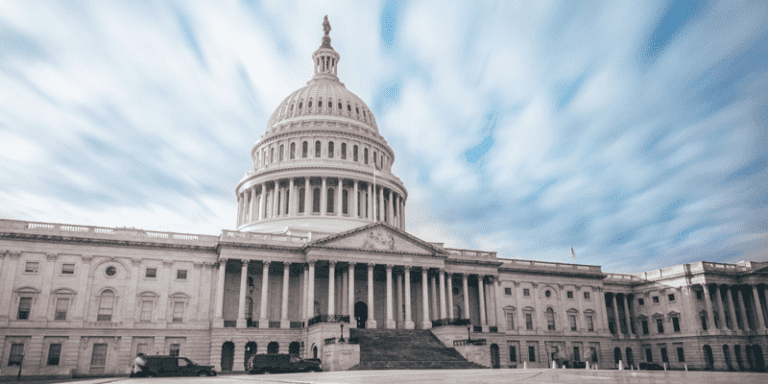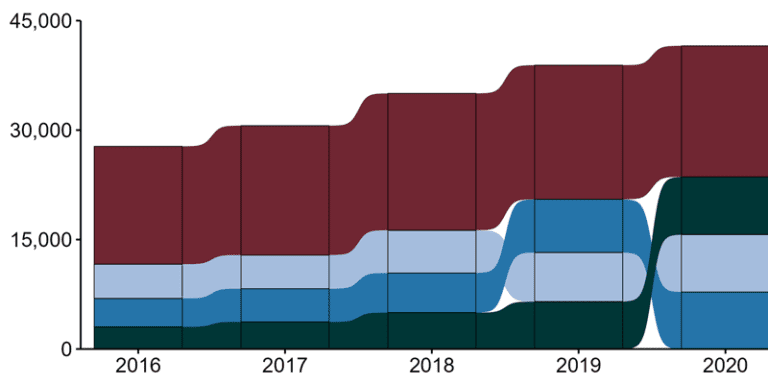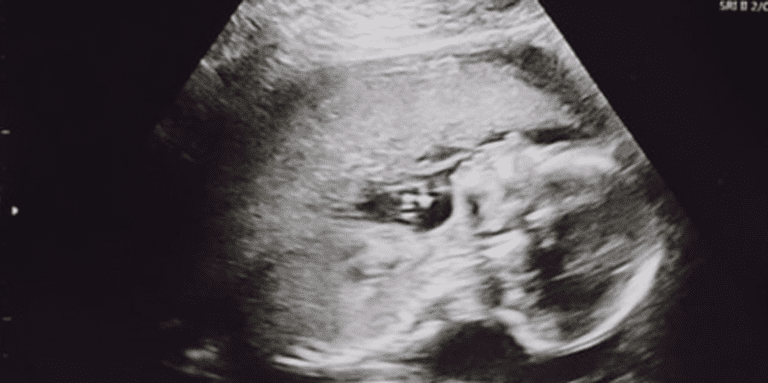The Point Blog
With Justice for All
Let me introduce you to Aidah. She worked in our home (our “inside worker”) during the eight months our family lived in Kenya in 2003/2004. Don and I worked at Tenwek Mission Hospital as family physicians, and our three children attended elementary and middle school at nearby Rift Valley Academy. She helped me buy food and cook it, and she kept our house clean. Aidah was our backbone. She was a rock.
Read MoreBack to Normal Life
Is life starting to feel normal again for you? By normal, I guess I mean pre-2020. Is life starting to feel the way it did before COVID and political intensity stretched us further as a society than we might have thought possible just two and a half years ago?
Read MoreThe Debate About Organ Donations
Organ transplantation has saved countless lives, increasing the demand for unpaired solid organs. As a result, the protocols for organ procurement continue to change to include more patients as “dead.”
Read MoreTop Ten Myths of the Sexual Revolution: Part 2
In this installment, we consider myths concerning marriage, sexual “repression” and the impact of the sexual revolution for women.
Read MoreThe Slippery Slope and Inevitability
As James 4:17 says, “Therefore, to him who knows to do good and does not do it, to him it is sin” (NKJV).
Read MoreMentorship in Uncertain Times
I recently had the pleasure of hosting a medical student in my home for a (mediocre) waffle breakfast (my sub-par cooking, not hers). She was a completing a sub-internship locally, and it was a joy to hear how her faith in Christ had inspired her to practice in resource-poor settings. I listened with a grin on my face as she described her heart for the downtrodden and afflicted, the mentors whose compassion inspired her and how she saw the Lord at work daily in her chosen specialty.
Read MoreWe Have This Understanding
“Do not conform to the pattern of this world, but be transformed by the renewing of your mind. Then you will be able to test and approve what God’s will is—his good, pleasing and perfect will” (Romans 12:2, NIV).
Read MoreDon’t Use Ice Picks for Brain Surgery
The first time I ever heard of a lobotomy was in the early 1980s. I was a medical student, but I didn’t learn about it in class. Instead, I was in a darkened room with a bunch of other family members, watching a family home movie filmed 30 years earlier. The scene was some kind of a garden party, and in the midst of the lively antics of my parents, their siblings and my great-aunts and great-uncles, there was a late middle-aged woman who just…stood there. Eventually someone took her arm and led her to a chair where she just…sat there. Completely still, no facial expression, no interaction with anyone else.
Read MoreWhat Comes After the “But?”
Coming out of the darkest days of COVID, I entered 2022 feeling bludgeoned by the experience I had just endured, both in medical practice and in society around me. I felt emotionally broke, overwhelmed and lost, to use some of Ms. Morrissette’s words. I was drowning in negative emotions and feeling psychologically depleted. My natural response was to grit my teeth and force myself to keep going. To get through each shift by ignoring my feelings and retreating into my knowledge.
Read MoreUnited Kingdom Closing the World’s Largest Pediatric Gender Clinic
The BBC broke a story July 28 headlined, “NHS to close Tavistock child gender identity clinic.” Following the Cass Interim Review determination that the current model of care “is not a safe or viable long-term option,” Britain’s National Health Service announced that their Gender Identity Development Service (GIDS), the world’s largest pediatric gender clinic, is to close by spring 2023. It is to be replaced with centers in London and North West with increased emphasis on mental healthcare and relevant general practitioner services. Also noted was that the UK’s 20-fold increase in referrals over the last decade (250 then and 5,000 in 2021) had overwhelmed the capacity of the service.
Read MoreTop Ten Myths of the Sexual Revolution: Part 1
All battles over human sexuality spanning the last 50 years in the Western world can reasonably be parked under the umbrella of the sexual revolution. Its foundational principles are assumed dogma throughout the educational and entertainment establishment, serve as battle cries for politicians and activists and have infiltrated much of the professing Christian community. However, the sexual revolution has been an unmitigated disaster for individuals and society, and it is built upon a foundation of lies.
Read MoreA Port in the Storm: Good News for CMDA Members
In the midst of often baffling and perplexing policies and mandates coming out of our nation’s capital, this post outlines good news for current and future members of CMDA. With conscience freedoms increasingly at risk from government infringement, we want to emphasize a recent victory in court. This victory affords you crucial protections of your conscience freedoms as a healthcare professional allowing you to practice from your sincerely held beliefs.
Read MoreThe Call
As a young man, I struggled some, wondering what my true calling in life was. At age 18, after months of prayer, I felt the Lord was calling me to life as a physician. Later, in medical school, the multiple options for work within medicine fascinated and, at times, bewildered me. They say the average undergrad student changes their major five or six times. I don’t know what the number is for medical students, but I know I seriously considered multiple options before I finally settled on neurology as a career choice, and later God also led me into working in palliative medicine, healthcare leadership and medical ethics.
Read MoreCanada’s Warning
While it is never possible to accurately paint a picture of the future, especially the future of the complex culture of healthcare, what is happening in Canada should alarm every healthcare professional in the United States who desires to practice medicine according to a Judeo-Christian ethic.
Read MoreProtect Your Conscience Rights
On August 4, 2022, the U.S. Department of Health and Human Services (HHS) published its notice of proposed rulemaking (NPRM) to the Federal Registry to modify Section 1557, the “Nondiscrimination in Health Programs and Activities Clause” of the Affordable Care Act.
Read MoreYour Body Will Be Whole: Meditations on Heaven
During my surgical training, I helped care for an aging professor who bemoaned his declining health. His mind still moved in academic circles, pondering the high points of chemistry and physics, but arthritis had so fused the bones in his neck that he couldn’t nestle into a pillow anymore. Cancer riddled his chest, and squandered nutrients, until his frame wasted to skeletal proportions. The simple routine of enjoying a meal pitched him into coughing, and pneumonia festered from the secretions that pooled in his lungs.
Read MoreOne Body
Today I am a pharmacist. Well, not really. I’m still a physician, but this week in the Dominican Republic on a Global Health Outreach (GHO) trip, I am serving as a pharmacist. The incredibly dedicated pharmacist who has served on this team for years is at home with COVID-19, and I am attempting to fill his shoes. And as I look around the pharmacy, I see a beautiful picture. While we don’t quite represent every tribe and tongue, we are a varied group, to be sure. There is a woman here from Georgia who is originally from Colombia, a woman here from Ohio who is originally from Indonesia and a multitude of Dominicans and Americans. When I look outside the pharmacy door at the rest of our 75+ team members, we represent at least 10 U.S. states and at least five countries of origin. We include physicians, dentists, nurses, students, optometrists, teachers, pastors and homeschooling moms. We span ages from 10 to 70. We have people triaging and organizing patients, taking vitals, pulling teeth, prescribing medications, performing ultrasounds, filling prescriptions, dancing, singing, making balloon animals and sharing the gospel. We speak English, Spanish, Indonesian and Tagolog. We are funded by people and churches who paid our way or bought medications, and we are even funded by airlines that waived baggage fees to allow the many bags of equipment to travel here. We are supported in prayer by hundreds of people across at least two countries. As a group, we exemplify the beauty of the body of Christ.
Read MoreMisinformation Spreads After Dobbs Decision
The June 28, 2022 piece by Rita Rubin in the Medical News & Perspectives section of JAMA, “How Abortion Bans Could Affect Care for Miscarriage and Infertility,” presents a one-sided narrow view of the potential impact of the U.S. Supreme Court’s ruling on women’s reproductive care, specifically the management of miscarriages and advanced reproductive technologies.
Read MoreA “Right Now” Word
Sometimes, we need a “right now” word. Sometimes, this is referred to as a “rhema word” or “God’s Word spoken to you.”
Read MoreRegretting Transition for Gender Dysphoria
Supporters of gender-affirming therapy (GAT)—transition affirmation—are doubling down on claims that regret and detransition are rare. From state-level bills in my home state of California to national policy initiatives from the federal administration, the assertion that transitioning for gender dysphoria is all but regret free is used as a promotional tool for the proposed mandating of GAT essentially on request. However, the sales pitch does not hold up to inspection.
Read MoreAdvocacy News for You
CMDA’s Advocacy Department is focused on serving as your voice to the government, media and public on bioethical and public policy issues. Much of the grassroots advocacy efforts we take on both federal and state levels depend on your individual involvement.
Read MorePsychopaths in the Workplace
Over the years, countless healthcare professionals have shared touching stories of mentors who encouraged and inspired them at early stages of their training. Such accounts motivate us to “pay it forward” and serve in that role for the next generation.
Read MoreConscience, Rights and the Social Imaginary
At the time of this writing, the official U.S. Supreme Court ruling on the possible overturn of Roe v. Wade is still pending. The contents of the leaked Samuel Alito document stating that the right to an abortion is not ensconced in the Constitution is still in draft form.
Read MoreMedical Errors and the Gift of Grace
In a conclusion to a case that has gripped the nation, on May 13, 2022 a judge in Tennessee sentenced former nurse RaDonda Vaught to three years’ probation with a judicial diversion, rather than a maximum sentence of 8 years in prison, for clinically negligent homicide.
Read MoreSpeaking Words of Wisdom
Do you remember your high school, college or medical/dental school graduation? Probably a bit, I suppose, but if you’re like me, those days are a bit of a blur. How about the graduation speaker at each of those events? Do you remember what was said?
Read MoreStanding for Truth Amid Shifting Government Policies
As a former federal government employee, I have observed firsthand how policies affecting our everyday lives are often crafted and administered by unelected federal bureaucrats. Coupled with presidential executive orders, this gives the executive branch a remarkable amount of power. Within the executive branch exists the regulatory framework, which is overseen by a little-known office under the purview of the White House called the Office of Information and Regulatory Affairs. Proposed actions from this office are published in the “Unified Agenda” twice a year in the spring and fall, giving the public a glimpse into what future regulatory action is on the horizon. Most of us are unaware (some may say blissfully so) of the volume of regulatory and deregulatory actions under development and review in more than 60 federal departments, agencies and commissions across the government. To give some perspective, the U.S. Department of Health and Human Services (HHS) currently has more pending actions than any other cabinet level department, which underscores the sheer size and reach of this titan agency with a budget that surpasses the gross national product of several countries!
Read MoreAbortion Pills and Reversal
The U.S. Centers for Disease Control and Prevention (CDC) reported that chemical abortions represented 38.6 percent of all U.S. abortions in 2018, an increase of 120 percent from 2009. According to the Associated Press, abortion by pill rose to 54 percent of all abortions in America in 2020. The abortion industry has evidently found its path to circumventing the possible overturning of Roe v. Wade, and that avenue is the mailbox.
Read MoreIn the first year of COVID, STDs still somehow increased across the U.S. What’s behind it?
Sexually transmitted diseases (STDs) continue to rise. However, according to last week’s press release from the U.S. Centers for Disease Control and Prevention (CDC), it’s apparently got nothing to do with sex.
Read MoreWho is to Blame, and How Should They Pay?
Pontius Pilate asked in John 18:38, “What is truth?” (NIV). More than 2,000 years later, we often find ourselves in the same position. It is hard to know what, or whom, to believe. Many of the people we would expect to be reasonably honest and transparent can no longer be trusted. The faith we place in major media outlets, large corporations, government officials and even churches may be at an all-time low.
Read MoreAbortion Training
A recent article by NBC News bemoaned the decreasing number of medical schools and residency programs that engage in abortion training. The author attempts to blame this reduction on the increasing number of states passing legislation restricting access to abortion. What is not acknowledged is the fundamental fact that aside from the state of Texas, where a very unusual law exists prohibiting abortion after the detection of a fetal heartbeat, no other state currently limits abortion in the first or early second trimester of pregnancy. The reason is the present legal landscape dictated by Roe v. Wade and Planned Parenthood v. Casey. This raises the question as to the real reason abortion training options are diminishing, since abortion is legal after the detection of a fetal heartbeat in 49 states and the District of Columbia.
Read MoreWaiting for the Lord in a Hospital Corridor
“Oh please, no more!” she cried. “You said I could go home, and now you’re saying I can’t. You’re a liar!”
Read MoreIs Wickedness Gaining the Upper Hand? Hardly.
At times it can seem like wickedness is gaining the upper hand. The increasing wickedness is primarily driven by an abounding disregard of God’s Word, a blatant disregard of truth. Those participating in and contributing to the increasing wickedness (wrongdoing) that we are being affected by throughout our society is cloaked in what they depict in their minds as “right-doing.” They believe their actions are advancing compassion, justice and mercy. However, this is faulty thinking. James 3:16-17 tells us such thinking or “wisdom” will create “…disorder and every evil practice. But the wisdom from above is first pure, then peaceable, gentle, open to reason, full of mercy and good fruits, impartial and sincere” (ESV).
Read MoreMy Comforter, My All In All
Blankets and quilts are nice, but for cozy wonderfulness on a chilly winter night, give me a comforter every time. A comforter is an old word, but it refers to a particular piece of bedding. Big and puffy, comforters have soft fabric on both sides of a fluffy interior. In addition to warmth, comforters provide…well…comfort.
Read MoreGrasping for Certainty
I had lunch with some dear friends today—Christian women physicians who have been my friends for almost 20 years. We talked about medicine—the woes of the current healthcare system. And we said we couldn’t imagine how things would continue, given the problems our healthcare system faces. We talked about parenting—the challenges of raising daughters. And we said we couldn’t imagine how kids could process social media and technology in a healthy way. We talked about our churches—the deep divisions between the maskers and non-maskers over the last couple of years. And we said we couldn’t imagine how the wounds could be healed. We talked about politics—the uncompromising partisan viewpoints on both sides of the aisle. And we said we couldn’t imagine how people could learn to work together given the depth of the divide.
Read MoreEven Failed Therapy for Undesired Same-Sex Sexuality Results in No Harm, Finds New Study
Swiftly on the heels of his 2021 study showing sexual orientation change efforts (SOCE) “strongly reduces suicidality” and that restrictions on SOCE may “deprive sexual minorities of an important resource for reducing suicidality, putting them at substantially increased suicide risk,”[1],[2] Sociologist Paul Sullins’ new peer-reviewed analysis revealed, as per its title, an “Absence of Behavioral Harm Following Non-efficacious Sexual Orientation Change Efforts: A Retrospective Study of United States Sexual Minority Adults, 2016–2018.”[3]
Read MoreIntellectual Humility: From Ancient Biblical Proverbs to 21st Century Research
No matter where you stand, it should be evident that a large swath of humanity confidently clings to tenets that are demonstrably untrue. Moreover, these beliefs are not borne exclusively of facts, experience and logic but a deadly array of confounding factors. The vast complexity of most subjects, misinformation, disinformation and information overload preclude anyone from total mastery of an issue. The solution is biblical, and it’s called intellectual humility.
Read More“First Do No Harm”
What would you think of a major regulatory body, known for its demanding standards for quality and utility—read integrity—that suddenly abandons its own rules, despite the loud protestations of its own quality advisory committee, and put its imprimatur of approval on a medication that: 1) fails to meet its established endpoints of utility; 2) costs more than $50,000 per year; and 3) has well-documented negative side effects? Not much, I hope. Unfortunately, this is exactly what the U.S. Food and Drug Administration (FDA) recently did with Aducanumab (trade name Aduhelm), a new monthly injection for early Alzheimer’s Disease.
Read MoreAmple Alternatives to Fetal Failures
Fairy tales and science usually don’t coincide; fairy tales are the stuff of myth and fancy, science of objective fact. Yet the continued push for fetal tissue research is extensively constructed of flimsy fairy tales, with proponents willfully ignoring objective fact in hopes of gaining some taxpayer dollars. The falsehoods about fetal tissue research have been repeatedly debunked by factual evidence, but fetal tissue research advocates continue to apply the Illusory Truth Effect: repeat something often enough, even if false, and people will begin to believe it. Unwilling to let a good crisis go to waste, fetal tissue proponents have even tried to exploit the COVID-19 pandemic, claiming that fetal tissue is essential for study of SARS-CoV-2 infections, making humanized “lung-only mice” using fetal tissue from abortion. Sadly, the unphysiological and anatomically inappropriate mouse model highlights the lengths to which some scientists will go to justify unethical practices. And while the Biden administration in 2021 removed sound ethical reviews and prohibitions on taxpayer-funded fetal tissue research, clinging to this antiquated research holds back modern, productive science. Here is just a small sampling of the scientifically and ethically superior methods and models that should be receiving attention.
Read MoreGospel Hope in Burnout
As the medical system groans beneath the burden of the pandemic, conversations have appropriately turned to burnout among healthcare professionals. Most dialogues point to external systems, e.g., the shrinking workforce, limited supplies and political contentions over vaccines. While these forces exert significant influence, and indeed pose a crisis in many parts of the U.S., deeper and more personal dynamics are at play.
Read MoreAvoiding Burnout
Apparently, Medscape does a yearly survey on physician burnout, and the one that just came out asked 13,000 physicians from 29 specialties about their personal experience with stress and signs of burnout. Being in the midst of a global pandemic, it won’t surprise anyone that burnout rates are rising.
Read MoreThe Point Blog Archives
The Point Blog ARCHIVE
All articles found in the archive are more than three years old.
The purpose of this blog is to stimulate thought and discussion about important issues in healthcare. Opinions expressed are those of the author and do not necessarily express the views of CMDA. We encourage you to join the conversation on our website and share your experience, insight and expertise. CMDA has a rigorous and representative process in formulating official positions, which are largely limited to bioethical areas.
The purpose of this blog is to stimulate thought and discussion about important issues in healthcare. Opinions expressed are those of the author and do not necessarily express the views of CMDA. We encourage you to join the conversation on our website and share your experience, insight and expertise. CMDA has a rigorous and representative process in formulating official positions, which are largely limited to bioethical areas.
Read MoreA Lack of Self-care in Healthcare
How many times have you gone to clinic when you were sicker than the patients you were treating? Listened to other people’s woes and stresses when your own were weightier? Given your last emotional resources to a patient whose need was less than your family member’s? Forfeited sleep while advising a patient of how curative it is? Advised a patient about nutrition and exercise right after scarfing a quick lunch from the vending machine?
Read MoreSustaining Our Joy in Practice
My eldest child left for college this fall, having chosen to attend school in Scotland. Yes, that’s right. Scotland. It’s a long way away. It’s also a place I had never previously visited. We went on a family trip to Scotland in March—partly to visit the school he now attends, and partly to have one last bang-up family vacation before we became a family that no longer lives under one roof. On that trip, we had not one, but two, flat tires on our rental car. A consequence of our struggles driving on the left side of the road, perhaps?
Read MoreNarcissism in Healthcare
I was looking up some information on the American Association for Physician Leadership website when an article caught my eye: “Are You a Narcissist?” I hadn’t decided what I was going to blog about this month; not surprisingly, narcissism was not on the list of things I was considering. But the article piqued my interest, so I clicked on the link and read the entire thing. There was even a quiz I could use to find out if I am a narcissist. You will be relieved to know I “passed” the quiz with a non-narcissist score! That was reassuring, but I was curious as to why this article interested me so much.
Read MoreFacing the Rise of Suicides in Healthcare
As a second year medical student, a member of my medical school class committed suicide. I didn’t know him well, but his death impacted me. Made me ask a lot of questions. Why didn’t I know him better? Had I gotten to know him, could I have made a difference?
Read MoreMy Doctorate in Secret-Keeping
Preparing to meet my next patient, I pick the next chart up off the counter. “Bob Smith,” married middle-aged patient, chief complaint: STD check. “Weird,” I think, “Mary Smith’s husband’s name is Bob, too. What a coincidence.” I open the exam room door, and Mary Smith’s husband, Bob Smith, is sitting inside.
Read MorePhysician Substance Abuse
According to a 2009 article in Mayo Clinic Proceedings, “Approximately 10% to 12% of physicians will develop a substance use disorder during their careers, a rate similar to or exceeding that of the general population.” But while our addiction rate may be similar to the rest of the country, the characteristics and consequences of our addictions are not.
Read MoreHealthy Healthcare Marriages
Doctors have had a bad rap on the marriage front for a number of years. We’ve long been accused of having a much higher divorce rate than the general public. For many years, there was not a lot of data on healthcare marriages, but strongly held popular opinion characterized a high percentage of us as overworked divorcees whose devotion to our patients cost us our marriages.
Read MoreWomen in Healthcare Still Earn Less than Men
And so begins a New York Times article about the recent JAMA Internal Medicine analysis of physician pay disparities. The central message of the analysis is that women in healthcare, on average, earn $20,000 less per year than their specialty-matched male colleagues.
Read MorePhysician Burnout
It was a relatively slow evening at work when I got the text. My phone vibrated on the clinic countertop as I was looking over a chart. “Are you busy? Can you talk?” I figured those words couldn’t be good, coming as they did from a young intern I mentored when she was a medical student. I found myself wondering if she had lost a patient.
Read More






